Business
Len Sirowitz, Whose Bold, Offbeat Ads Captured an Era, Dies at 91
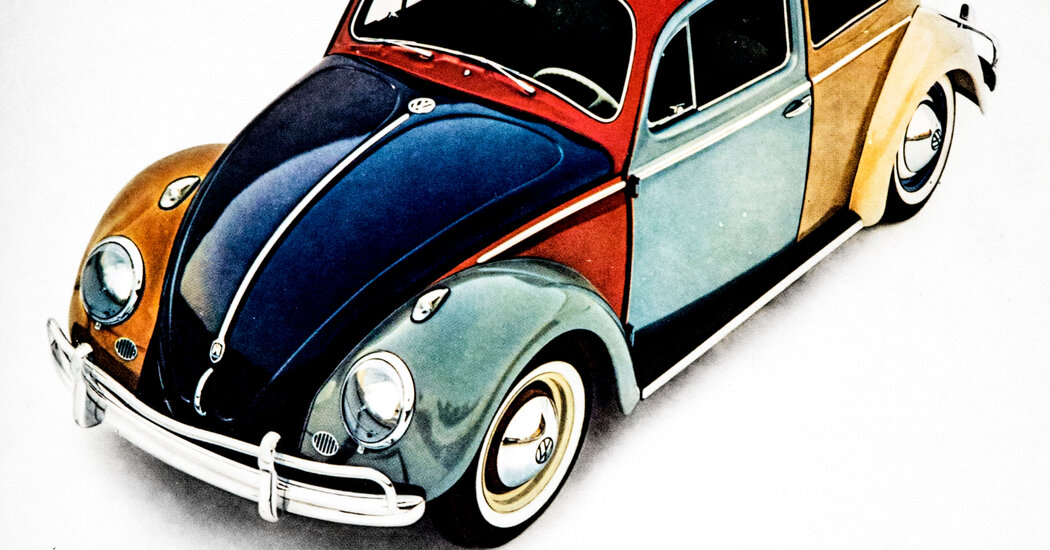
Len Sirowitz, an award-winning advertising art director whose creative work in the 1960s included memorable print ads for the Volkswagen Beetle — like one declaring, “Ugly is only skin-deep” — and a campaign for Mobil in which a car was dropped off a 10-story building to make a point about the perils of speeding, died on March 4 at his home in Manhattan. He was 91.
His daughter, Laura Sirowitz, confirmed the death.
Mr. Sirowitz joined the influential Doyle Dane Bernbach advertising agency, known as DDB, in 1959, at 27, and spent the next 11 years at the firm conceiving the look of ads for numerous accounts with wit and passion.
“It was quite early in my career that I began to realize that my message needed to not only be bold and daring, but it must stem from the truth … and touch people’s emotions,” he told Dave Dye, who runs the advertising blog From the Loft, in 2015.
Volkswagen was perhaps Mr. Sirowitz’s most important account, and the homely Beetle, nicknamed the “Bug,” was his and copywriter Robert Levenson’s automotive muse. Their collaborations for the German car maker included the ad “Will We Ever Kill the Bug?” in which they positioned a Beetle turned on its roof, like a dead bug. The answer to the question: “Never.” (Though, after a few shots of the car, its roof collapsed.)
The pair also devised an ad that showed a motley Beetle constructed of green and beige fenders, a blue hood and a turquoise door, which were cobbled together from models between 1958 and 1964. The ad stressed the ease with which owners could find parts.
For Sara Lee, Mr. Sirowitz and Mr. Levenson created a TV commercial in which people dealt with annoyances like haircuts and traffic jams, then consoled themselves with a piece of the company’s cake, introducing a soon-to-be enduring jingle: “Everybody doesn’t like something / But nobody doesn’t like Sara Lee.”
For Mobil’s public service newspaper and TV ads about highway safety, Mr. Sirowitz illustrated how crashing at 60 miles per hour would have the same impact as a car dropping from 10 stories. “And it will get you to exactly the same place — the morgue,” the narrator said.
Another TV ad for Mobil showed a couple canoodling in a car as the man drives against the blinding lights of oncoming traffic, eventually leading to a crash. A narrator says: “We at Mobil sell gasoline and oil. We’re in favor of driving and love, but not at the same time.”
And for the Better Vision Institute, an association of lens and frame manufacturers, Mr. Sirowitz produced dozens of promotions that ran in Life magazine persuading people to have their eyes examined more often. One particularly dramatic ad ran in all-black with copy by Leon Meadows reading, “This is how yellow daisies in a green pasture against a blue sky look to many Americans.”
Bob Isherwood, a former worldwide creative director of Saatchi & Saatchi, called Mr. Sirowitz a “hero art director” for his flow of fresh ideas and different approaches.
“It was just an idea that he put on the page,” he said in a phone interview. “When you see ads like that you think, ‘Oh, God, I wish I had done that.’”
Leonard Sirowitz was born on June 25, 1932, in Brooklyn. His father, Abraham Sirowitz, immigrated from Ukraine in 1905 and held various jobs, including taxi driver and jewelry polisher. His mother, Sadie (Schoenwetter) Sirowitz, ran the home.
Mr. Sirowitz’s passion for drawing led to studies at the Art Students League of New York in Manhattan at age 12 and, two years later, his acceptance to the High School of Music and Art (now the Fiorello H. LaGuardia High School of Music & Art and Performing Arts). There, he met his future wife, Myrna Florman, a music student known as Mickey, when he was 17 and she was 14.
Mr. Sirowitz graduated in 1953 from the Pratt Institute, where he earned a bachelor’s degree in advertising. He spent the next two years in the Army, mostly at Fort Dix in New Jersey, and he married Miss Florman during his service in January 1955. She survives him, along with his daughter; a son, Michael; and one grandson.
After his Army discharge, Mr. Sirowitz worked at the L.W. Frohlich pharmaceutical ad agency as well as Grey Advertising, CBS and Channel 13, the public TV station in New York.
In addition to working for DDB’s commercial clients like Sony, where Mr. Sirowitz created a whimsical campaign based on the portability of its four-inch-wide TV, he also took on political causes as a volunteer.
A full-page newspaper ad in 1965 for the National Committee for a Sane Nuclear Policy showed a cockroach against a white background with the headline: “The Winner of World War III.”
Another ad in 1968, for the Coalition for a Democratic Alternative, carried, in giant letters, the headline “For what?” Below it, text by Dave Reider, a copywriter, described the hopelessness of the Vietnam War, demanded that President Lyndon B. Johnson step down and argued for Senator Eugene McCarthy of Minnesota to be the Democratic nominee for president.
Mr. Sirowitz was DDB’s senior vice president and associate creative director when he left in 1970 to form his own agency, Harper Rosenfeld Sirowitz as co-chairman and co-creative director. (It was renamed numerous times over the years.) By then he had been voted art director of the year for 1968 and 1970 in national polls by Ad Weekly. He was inducted into the Art Directors Club Hall of Fame in 1985.
His agency’s clients included Swissair, McDonald’s, Smith Corona and Royal Caribbean Cruises. Still, in 1995, the firm closed after losing several accounts, and Mr. Sirowitz joined the agency Ryan Drossman & Partners as vice chairman.
He soon retired and returned to the Art Students League, where he drew large-format, charcoal nude portraits four days a week.
“I strive for bold, dramatic interpretations of the model’s pose, drawn with spontaneous sweeping lines, and most importantly it should be part of a strong, well-designed composition,” he told the institution’s magazine, Lines from the League, in its 2012-13 issue.
His composition style came through clearly in his ad campaigns, including one in 1991 for America West Airlines, in which he cast the improvisational comedian Jonathan Winters — looking tough and wearing camouflage — in a parody of Gen. H. Norman Schwarzkopf, who had recently commanded U.S. troops in the Gulf War.
The ad declared, “Announcing Air Superiority for Civilians,” and offered airfares discounted by up to 40 percent.
The campaign, however, was rebuked by the organization Veterans of Foreign Wars for being in poor taste, and America West soon after filed for Chapter 11 bankruptcy protection.
“To me, great advertising should make your palms sweat,” Mr. Sirowitz told The Associated Press. “America West is the smallest of the major airlines. We wanted to do to the kind of advertising that would put them on the map in one fell swoop.”
Business
Germany’s Solar Panel Industry, Once a Leader, Is Getting Squeezed
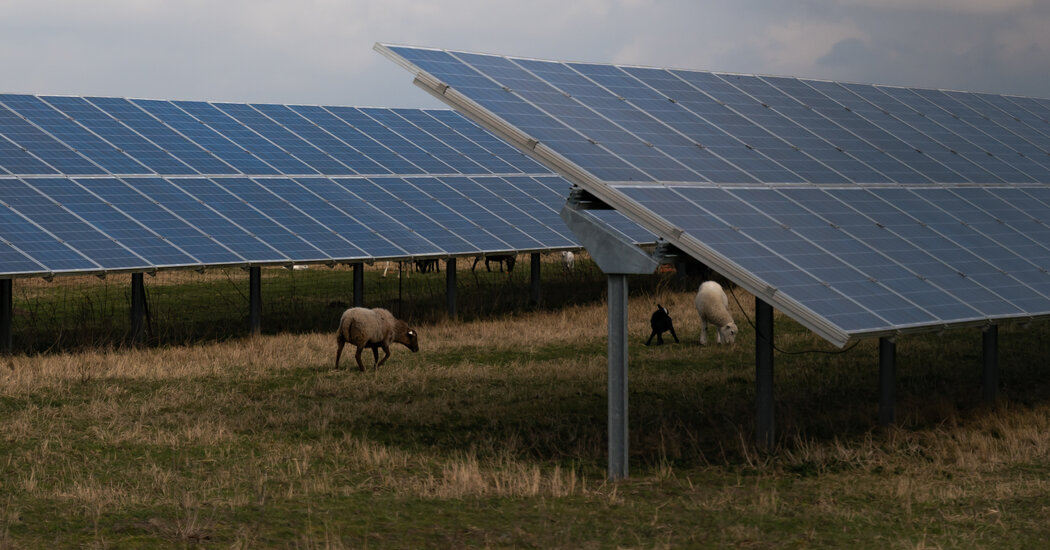
Before China came to dominate the solar panel industry, Germany led the way. It was the world’s largest producer of solar panels, with several start-ups clustered in the former East Germany, until about a decade ago when China ramped up production and undercut just about everyone on price.
Now as Germany and the rest of Europe try to reach ambitious goals to cut greenhouse gas emissions, the demand for solar panels has only increased.
Some of the last remaining manufacturers in Germany’s solar industry are not ready to give up.
They are demanding that the government in Berlin offer incentives to protect producers that have survived by catering to niche markets and expanding beyond making panels. They argue that Europe’s high standards for the origin of materials and shorter supply chains make production in Germany more environmentally friendly and reliable.
Not everyone is convinced protectionism is the way to go. Some critics note that the European Union’s tariffs on Chinese solar panels from 2013 to 2018 failed to save the domestic industry. Others argue that affordable, widely available solar panels are desperately needed regardless of their origin.
Because Europe relies “to a very important degree” on imported solar panels, any measure to restrict imports “needs to be weighed against the objectives we have set ourselves when it comes to the energy transition,” Mairead McGuinness, the European commissioner for financial stability, told the European Parliament last month.
But for European solar manufacturers, the problem has gotten worse in the past year. Not only have the Chinese increased their production of solar panels, but the United States tightened its tariffs to include Chinese panels shipped to Southeast Asian countries for final assembly. That has caused a flood of Chinese panels to reach Europe at below-market prices, government officials and company executives say, crushing any chance at fair competition.
Last year, more than 97 percent of the solar panels installed on roofs and in fields across Europe were made abroad, the vast majority in China, where cheap energy and government support keep prices low.
“Chinese competitors are currently giving away their products in unimaginable quantities in Europe at far below their own production costs,” said an open letter to the government written by Gunter Erfurt, the chief executive of Meyer Burger, a Swiss solar energy company that has two factories and a research center in Germany.
“We are fighting for fair market conditions, which have not existed for just under a year,” Mr. Erfurt wrote.
Mr. Erfurt’s appeal cited several other German companies involved in solar production that all want the government to help shore up the industry in the face of the fierce competition from China.
The German Solar Association is calling on the government to push through a proposed incentive, called a “resilience bonus,” that would pay solar panel owners a higher rate for electricity that is fed into the grid from domestically produced panels.
“While other countries such as the United States and China are strongly promoting the establishment and scaling up of solar gigafactories, the German government has yet to take concrete action,” the group warned in January.
To meet its ambitious climate goals, Germany needs to generate an additional 80 gigawatts of solar power annually. But last year, the country installed enough to generate just 9 gigawatts — and domestic photovoltaic companies say they have the capacity to produce only about 1 gigawatt of solar power per year.
That reality has led to a bitter dispute within the German solar industry, where some believe subsidies will do more harm than good.
Philipp Schröder, a former Tesla executive who runs 1Komma5, a solar company he co-founded, said it got its components mainly from Europe and the United States and successfully competed against low-cost Chinese panels by bundling panels with heat pumps, batteries and software to run the complete system. He is against any form of government support.
“The resilience bonus being discussed in Germany right now might be beneficial for a few profiteers in the short term, but in the medium term it acts like an addictive drug that suppresses innovation and fragments the E.U. market,” Mr. Schröder said in a post on LinkedIn.
This month, Meyer Burger deepened the dispute when it halted production at a facility in Freiberg in the eastern German state of Saxony and said it would shift the company’s focus to expanding production in Arizona and Colorado. There, it can take advantage of U.S. tariffs imposed on Chinese panels and incentives offered through the U.S. Inflation Reduction Act.
“Due to a lack of European protection against unfair competition from China, nearly four years of hard work by great employees in Europe is at risk,” the board of Sentis Capital Cell 3 PC, the largest shareholder in Meyer Burger, said in a statement. In a slap at German lawmakers, the board cited “strong bipartisan commitment” in Washington “to protect U.S.-based companies against unfair competition.”
Further stoking anger in the solar industry are the billions in subsidies that the government has pledged to attract other companies, including the battery producer Northvolt and the microchip manufacturers Intel and TSMC, as it appears stymied over the question of how to handle solar.
Sven Giegold, an under secretary in the Economy Ministry, told reporters this month that Germany would propose measures to help “support the local production of solar technology,” but quickly added: “Trade defense measures are not helpful.”
Germany has been here before. In the early 2000s, a combination of government incentives, scientific research and cutting-edge technology helped make its solar industry the world’s leading producer of photovoltaic panels and technology.
Then manufacturers from abroad, especially China, caught on and sold solar panels at prices well below what the Germans were offering. The impact was swift and brutal. Companies such as Q-Cells, Solon and SolarWorld declared bankruptcy and disappeared. But some businesses held on by focusing on assembling, installing and integrating solar panels in comprehensive green power systems.
Simone Tagliapietra, a senior fellow at Bruegel, the Brussels-based think tank, said he agreed that new tariffs would not make sense. To achieve a secure supply of panels, as well as support the green transition and economic growth, he suggested that Europe instead support development of new solar technologies.
“Go for the new generation of solar panels, products that are still at the forefront of innovation,” Mr. Tagliapietra said. “If we cannot beat the Chinese on quantity, we need to try to beat them on quality.”
Solarwatt, based in the former East Germany, said it might also have to close one of its solar panel plants. But making panels is only one part of the company; it also creates systems that connect the power generated by solar panels to wall boxes that can charge cars and heat pumps to warm homes.
“The future of our company is not a risk, even if production had to be shut down,” the company said in a statement, adding that other divisions could absorb the roughly 120 people whose jobs would be at stake.
Meyer Burger’s decision to shut its plant in Freiberg has left as many as 500 jobs in limbo. The company’s chief executive, Mr. Erfurt, said the factory’s future depended on political leaders in Berlin. “But we don’t see a bridge being built from the government at the moment,” he said.
At the same time, the company is contemplating other alternatives, he said, adding that “one option is simply to dismantle and rebuild it in U.S.”
Business
UK Chancellor Jeremy Hunt leaves Downing Street with red box ahead of delivering budget
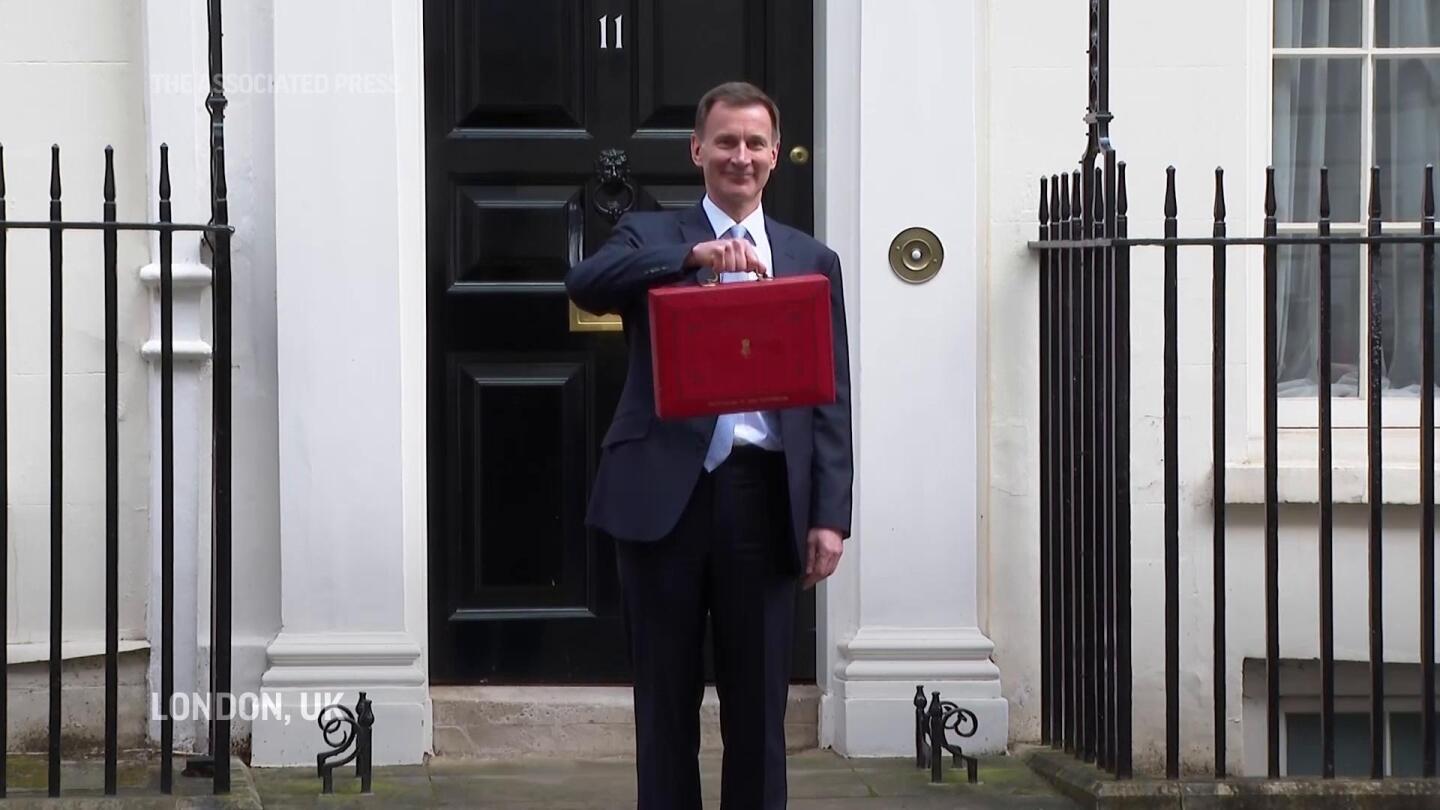
In the run-up to the U.K. election which opinion polls show the governing Conservative Party losing, Treasury chief Jeremy Hunt is looking to regain political initiative by announcing tax cuts during his annual budget statement. (Mar 6).
In the run-up to the U.K. election which opinion polls show the governing Conservative Party losing, Treasury chief Jeremy Hunt is looking to regain political initiative by announcing tax cuts during his annual budget statement. (Mar 6).
Business
Trains and flights cancelled across Germany as transport unions begin two-day strike
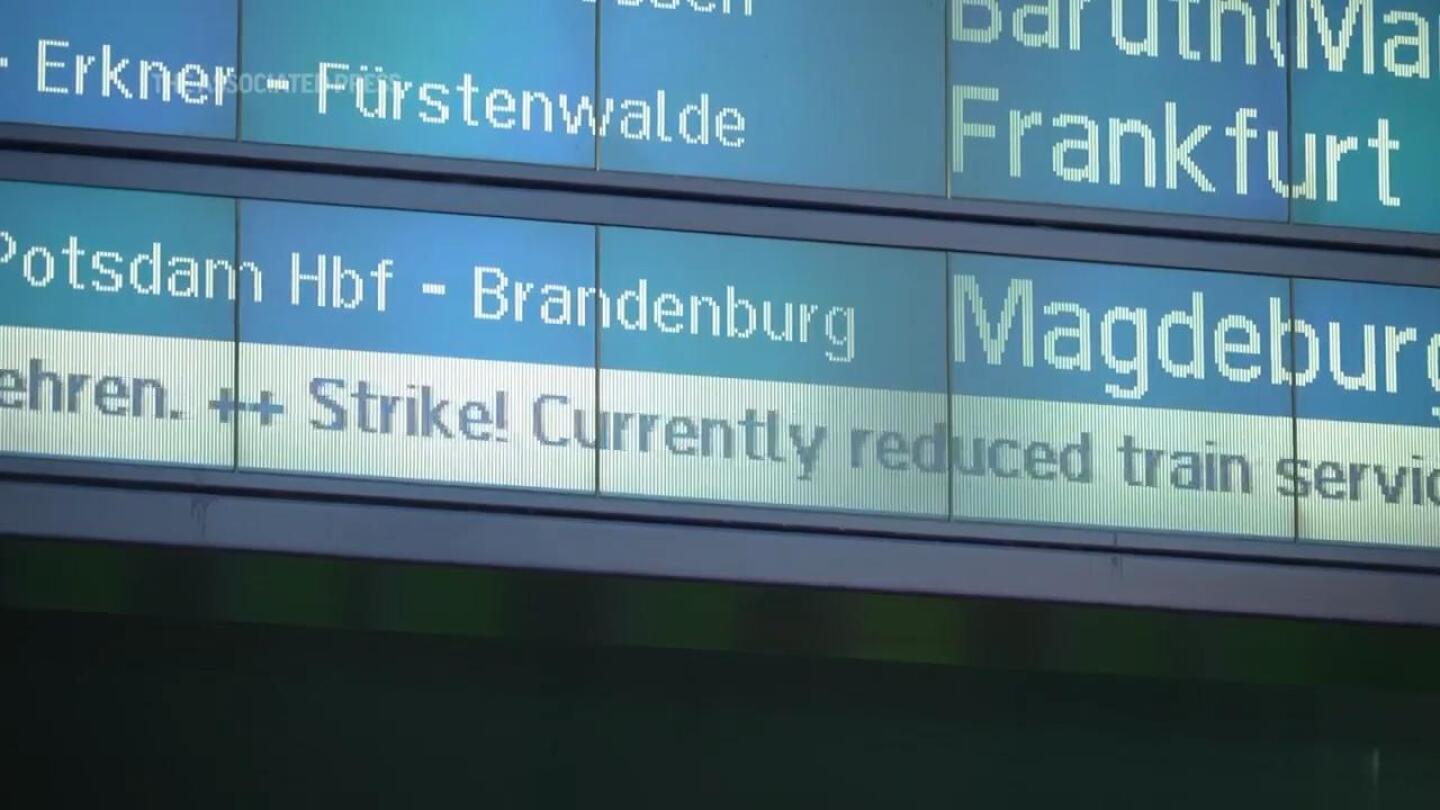
Trains and flights cancelled across Germany as transport unions begin two-day strike
Source link
-
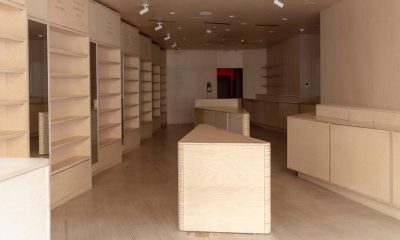
 Tech7 months ago
Tech7 months agoBehind the Closing of Shen Beauty, a Brooklyn Boutique
-

 Tech7 months ago
Tech7 months agoHamas Seeds Violent Videos of Israel Attack on X and Telegram
-
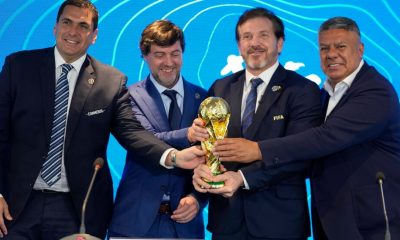
 Top News7 months ago
Top News7 months agoFIFA Will Host 2030 World Cup on Three Continents
-

 Top News7 months ago
Top News7 months agoACT test scores for US students drop to new 30-year low
-
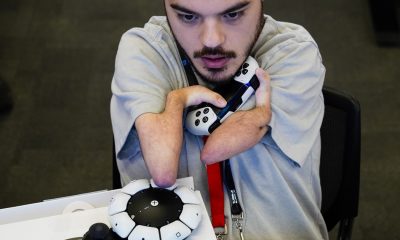
 Top News7 months ago
Top News7 months agoSony’s Access controller for the PlayStation aims to make gaming easier for people with disabilities
-

 Business7 months ago
Business7 months agoExxon Acquires Pioneer Natural Resources for $60 Billion
-
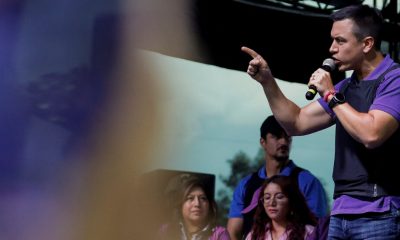
 Top News7 months ago
Top News7 months agoIs Daniel Noboa the Answer to Ecuador’s Need for Change?
-

 Tech6 months ago
Tech6 months agoA Stairway to Nowhere Sells for $32,000 in London



